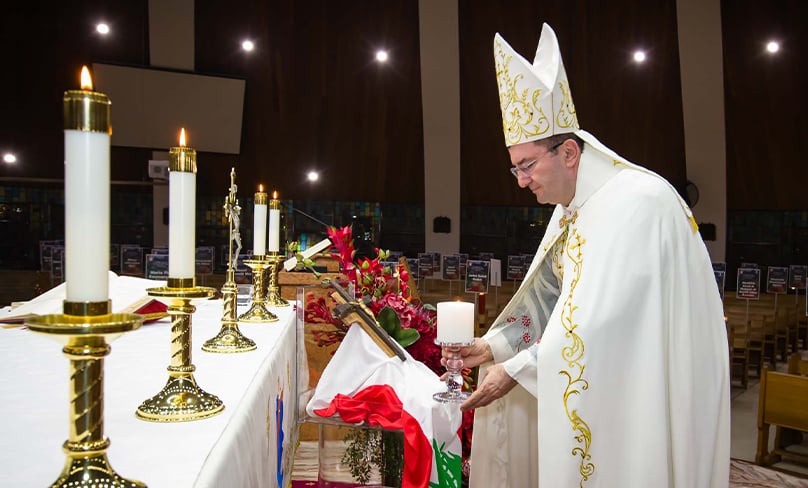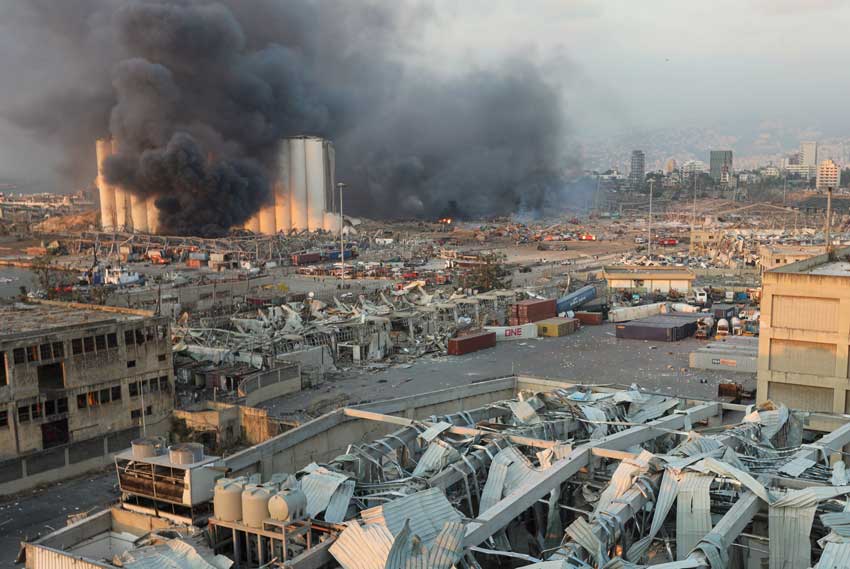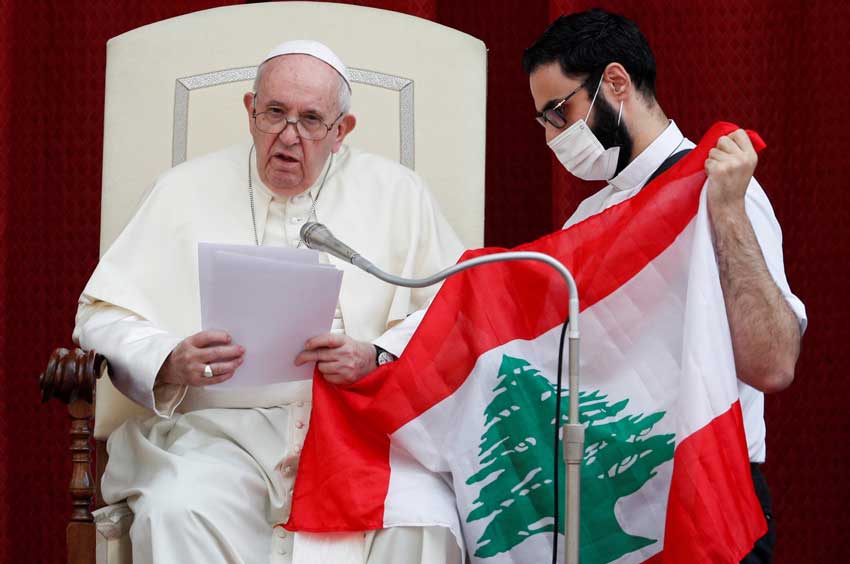
Maronite Bishop Antoine-Charbel Tarabay has called for an independent investigation into the explosions that rocked Beirut and killed hundreds of people one year ago.
On 4 August 2020, a massive blast in a port warehouse destroyed large sections of the centre of the capital, killing at least 214 people and injuring thousands more. It displaced 300,000 people.
The explosion – caused by a poorly stored stock of ammonium nitrate fertiliser – was one of the largest non-nuclear blasts in history.
Celebrating a Memorial Mass for the victims of the explosion, the Eparch of the Maronites in Australia, New Zealand and Oceania said their families had a right to answers.
“We also have a right to know what adequate measures have been taken to ensure that a similar tragedy does not occur again.”
“We support the call for the United Nations Human Rights Council to launch an international investigation into the disaster and answer the urgent questions of what happened on the 4th of August at the port of Beirut.
“And who was responsible for storing the ammonium nitrate for seven long years at a busy port?
“We also have a right to know what adequate measures have been taken to ensure that a similar tragedy does not occur again.”
In his homily for the Mass which was livestreamed from Our Lady of Lebanon Cathedral in Harris Park, the Bishop said that the country was already suffering from widespread corruption, mismanagement, economic failure and the effects of the pandemic when the explosion happened.

“August 4 does not only symbolise a tragedy of one day or a tragedy of a moment [but] the tragedy of a suffering people, because of self-interest and lack of accountability of many Lebanese political leaders,” he said.
“And even today, a year on, no one has been brought to justice for that.
“We have only heard about futile investigations that have achieved no tangible results.”
Bishop Tarabay recently visited Beirut and met with relatives of some of the victims there, but he also recalled by name the six victims as well as members of a firefighting unit who had family members in Australia.
“As Lebanon slips further into chaos many people struggle to access basics of healthcare, electricity, petrol, medicine and education.”
They included two-year-old Isaac Oehlers, Joseph Latif Merhi, Jacqueline Jibrine, Nicole Majid Elhelou, Micheline Khalil Taouk and Joseph Roukoz.
Though the church was empty, it was filled with symbols of hope, including a cross made from wood from destroyed Beirut homes, the victim’s names on posters, and the blessing of a cedar tree to be planted in their memory.
As Lebanon slips further into chaos many people struggle to access basics of healthcare, electricity, petrol, medicine and education.
In Beirut, the anniversary saw several mass protests particularly at the port, with some protesters also attempting to break into the parliament.

The bishop thanked the Federal Government for its aid to Lebanon and acknowledged messages of support from Prime Minister Scott Morrison, NSW Premier Gladys Berejiklian and the Minister of Foreign Affairs Marise Payne.
At his general audience on 4 August, Pope Francis said he “greatly desired” to visit the stricken country.
“So many people have lost the desire to go on,” he said.
The Pope appealed to the international community, asking it to help Lebanon, “not only with words but with concrete actions in undertaking a journey of resurrection”.
“However, some world leaders have said their help would be conditional on Lebanon establishing a government that can fight corruption.”
He also said he hoped a donor conference led by France and the UN would prove fruitful.
That conference, held on the same day, sought to raise $357 million (AUD $508 million) in aid to meet the country’s most urgent needs, providing food, education, health care and clean water.
However, some world leaders have said their help would be conditional on Lebanon establishing a government that can fight corruption.
Leaders in Lebanon have been unable to reach an agreement on forming a new government for the past 10 months, delaying reforms and tackling current crises.
Related Articles:
